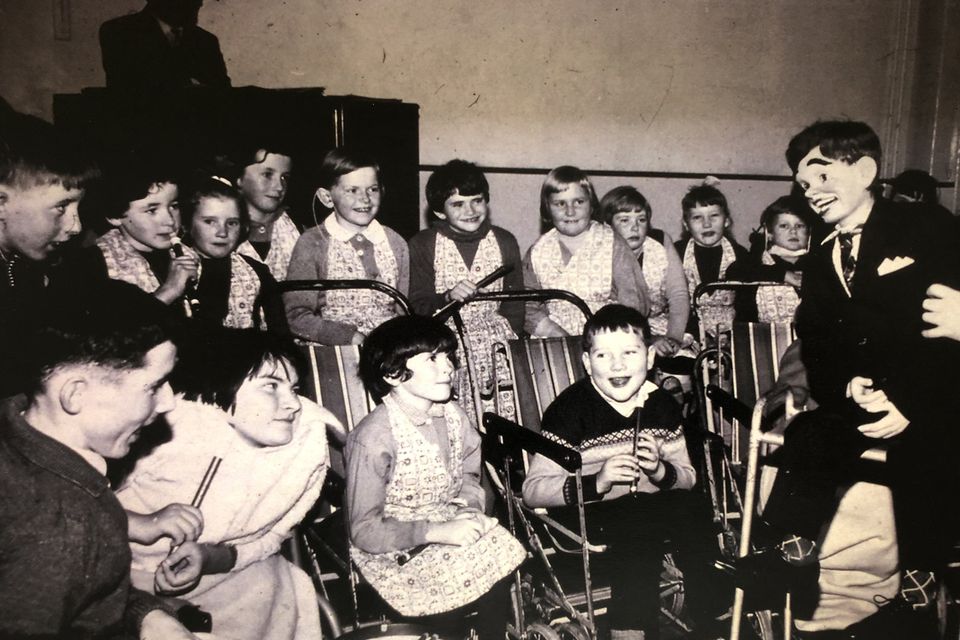Disability rights activist Martin Naughton's legacy: ‘He felt that if his story was forgotten, it would be easier to make the change he had driven go backwards’
Muscular dystrophy sufferer Martin Naughton was nine when, in 1963, he was sent to live in an institution. It led him to become a prominent campaigner for independent living and disability rights. Now, that fight is remembered in his posthumous memoir
Martin Naughton as a child with the tin whistle (front row, right) at a Christmas party at St Mary's Hospital in Baldoyle, Co Dublin in 1964. His sister Barbara is second from right in the back row. Photo: Lensmen/Irish Photo Archive
Martin Naughton never expected to have a long life. Born in 1954, children like him, diagnosed with muscular dystrophy, often died young. And Naughton was almost one of those, coming close to dying when he was 15 but living to fight another day. And fight he did, becoming a powerful and indefatigable campaigner for disability rights, a founder of the first Centre for Independent Living, and at the forefront of securing personal assistants (PAs) that would allow people with disability to live independently.
When he died in late 2016, Naughton had put decades of his story on paper with writer Joanna Marsden, who then had to make the decision to complete it without him. Now coming to publication, Never Know Your Place is a story of Irish society as much as Naughton’s personal history — an institutionalised childhood, an adulthood of ferocious, self-styled independence — that should push us to examine not only who we were then but also what inclusion really means now. To imagine the job’s all done is to forget Naughton and all his hard work.
Join the Irish Independent WhatsApp channel
Stay up to date with all the latest news










